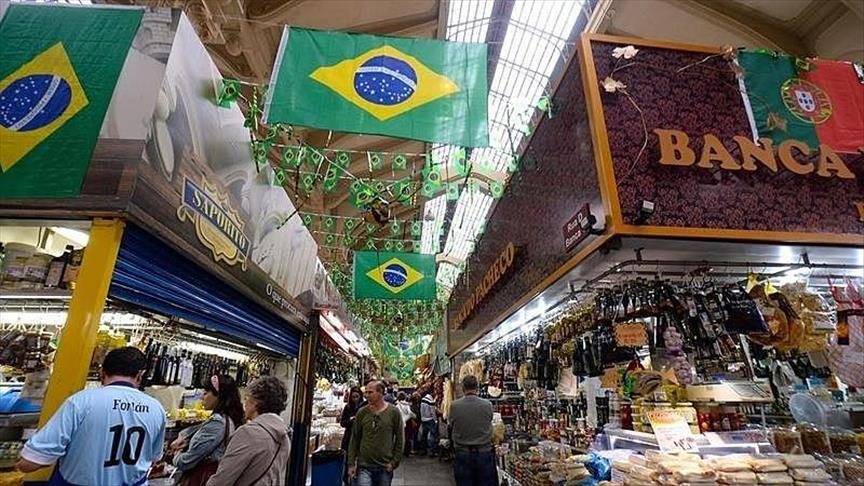ECONOMISTS FORECAST BRAZIL’S WORST RECESSION SINCE 1901


London, 25 Rabi’ul Awwal 1437/5 January 2016 (MINA) – Brazil’s economy will shrink by nearly 3 percent in 2016, according to estimates published Monday in a weekly central bank survey of 100 of the country’s economic institutions.
Gross domestic product in Latin America’s largest economy will contract by 2.95 percent in the thirteenth consecutive cut in the outlook for 2016, Anadolu Agency quoted by Mi’raj Islamic News Agency (MINA) as reporting.
The predictions are more than previously expected by economists, as economic output and confidence continue to dwindle amid a prolonged political crisis.
It is also now believed that the economy contracted by 3.71 percent in 2015, the year in which the country entered a technical recession — defined as two or more consecutive quarters of negative growth.
If confirmed, the recession could be the worst Brazil has experienced since reliable records began in 1901 and the first time the country has seen back-to-back years in recession since 1930-31.
Reacting to the news, the real was down 2.7 percent against the dollar just before 3 p.m. in Sao Paulo (GMT1700) on Monday. The country’s main Ibovespa index was also lower at around 2 percent.
The real was the worst-performing currency in 2015 among major economies, losing almost one-third of its value against the greenback; the Ibovespa dropped 12 percent.
A protracted political crisis has exacerbated the country’s economic crisis. Brazil is reeling from the biggest political corruption scandal in its history, centered on state-run oil giant Petrobras. Opposing political factions are attempting to impeach President Dilma Rousseff and overthrow Eduardo Cunha, the embattled speaker of the lower house of Congress.
The government has also failed to force through Congress a raft of austerity measures — a move the markets say is required to address the country’s dismal economic outlook.
The news comes after a second major credit rating agency in December downgraded Brazil to speculative grade – sure to worsen the country’s fortunes as some investors will be forced to withdraw assets as a result of the lower rating.
It also follows a change at the top of Rousseff’s economic team, after former pro-austerity finance minister Joaquim Levy was replaced by Nelson Barbosa, seen as politically closer to the president.
“The first challenge that Brazil must overcome before GDP will rise again, and inflation and interest rates can fall, is the political gridlock currently seen in Brasilia,” said Camila Abdelmalack, an economic analyst at CM Capital Markets in Sao Paulo.
“We need to get past the proceedings against Rousseff and Cunha, one way or another, before any economic recovery can take place, to boost the credibility that we’ve lost,” she told Anadolu Agency, adding that the new finance minister, known for his anti-austerity views, was likely “not the solution Brazil needs”.
With Congress in recess until February, proceedings against Rousseff and Cunha are likely to take several months to resolve. As such, Abdelmalack says economists have “minimal expectations” for 2016, and are instead “looking to 2017” as the year that might herald a recovery for the Brazilian economy.
The annualized rate of inflation, currently estimated to be running at 10.72 percent, is predicted to fall to 6.87 percent — far closer to the government’s central target of 4.5 percent, which the central bank says it is aiming to achieve in 2017.
Despite the forecast of lower inflation, Brazil’s benchmark Selic interest rate, already at 14.25 percent, is not likely to fall any time soon, with the central bank now expecting the rate to end 2016 even higher, at 15.25 percent. (T/P010/R03)
Mi’raj Islamic News Agency (MINA)



